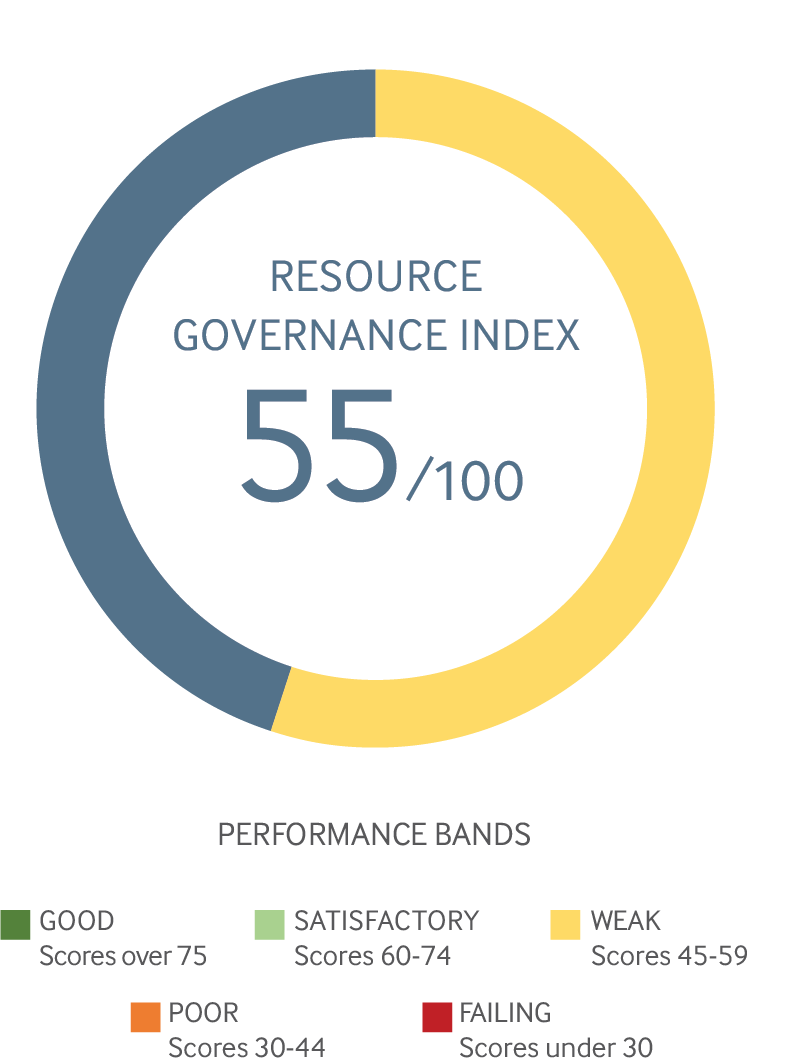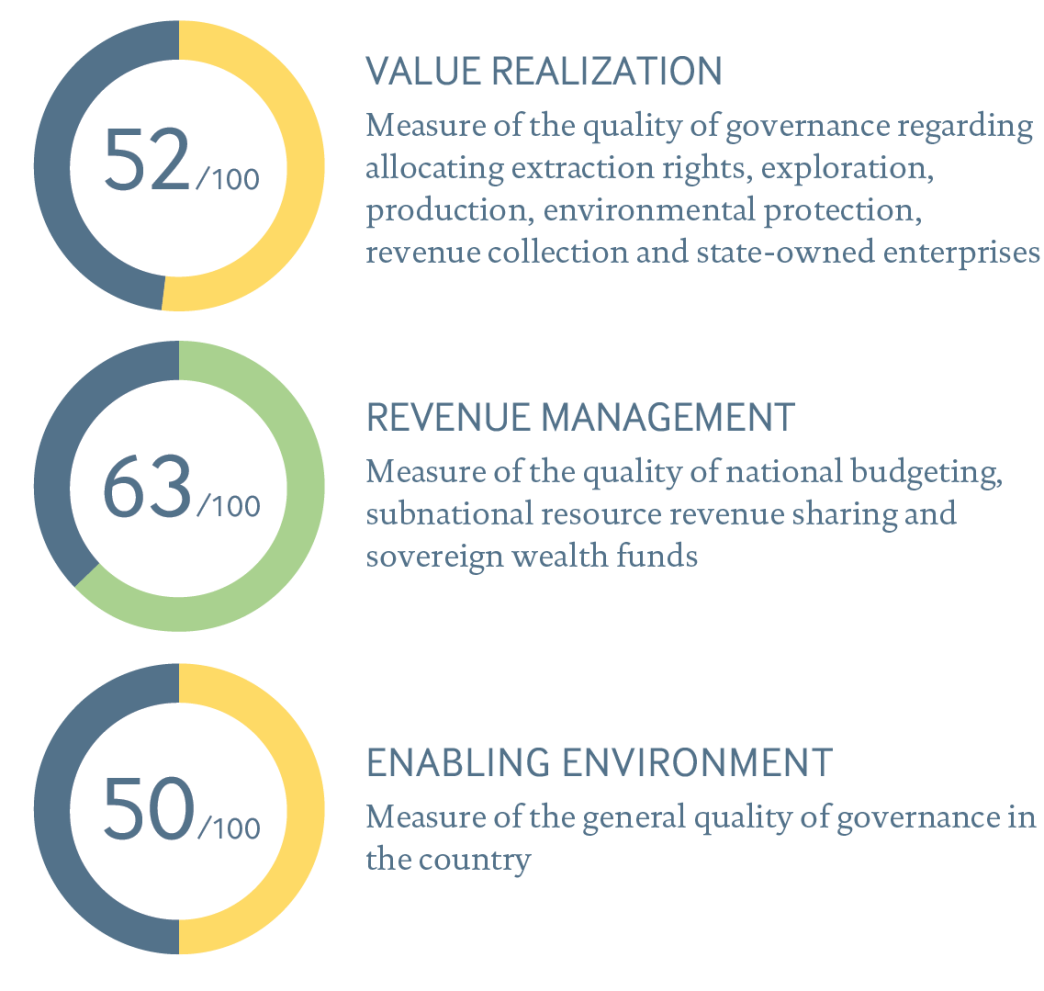
2021 Resource Governance Index: Uganda (Mining)
Read the press release.
View the launch event »
Assessed for the first time in the 2021 Resource Governance Index (RGI), Uganda’s mining sector has scored 55 out of 100 points, placing it in the “weak” performance band. Uganda’s mining sector faces several challenges, although this score also reflects positive features including the existence of an open mining cadaster, reforms in the fiscal regime and robust rules for disclosure and auditing of subnational resource revenue sharing mechanism. Issues exist within the licensing process and the governance of local impacts. The broader enabling environment is also an obstacle to good governance, with the index’s control of corruption subcomponent scoring as “failing.”
Key messages
View the launch event »
Assessed for the first time in the 2021 Resource Governance Index (RGI), Uganda’s mining sector has scored 55 out of 100 points, placing it in the “weak” performance band. Uganda’s mining sector faces several challenges, although this score also reflects positive features including the existence of an open mining cadaster, reforms in the fiscal regime and robust rules for disclosure and auditing of subnational resource revenue sharing mechanism. Issues exist within the licensing process and the governance of local impacts. The broader enabling environment is also an obstacle to good governance, with the index’s control of corruption subcomponent scoring as “failing.”
Key messages
- Within the governance of licensing, the government has not passed regulations or disclosed information relating to companies’ beneficial owners and the disclosure of contracts signed with extractive companies.
- The governance of local impacts placed in the “poor” performance band, as access to environmental and social impact assessments is limited by the requirement of an application and fee to access assessments.
- Although numerical fiscal rules are documented in a public policy, these are not enshrined in law and there is no adherence requirement or monitoring by the government.
- Uganda’s subnational mining revenue sharing mechanism received a “good” score, the result of firm rules, disclosures and auditing procedures.
Recommendations
NRGI recommends the following courses of action to improve mining governance in Uganda:
- The government and the National Environmental Management Authority should ensure environmental and social impact assessments and environmental mitigation plans are freely and easily accessible through its online portal.
- The government and all key ministries should publish online key documents and information about the mining sector, to ensure that they are easily and publicly accessible, reporting to the depth required by the Extractive Industries Transparency Initiative.
- The government should adopt official laws setting a firm numerical fiscal rule governing public expenditure and establish an oversight authority to ensure compliance is regularly monitored.
- The government should ensure that Uganda capitalizes on its reserves of minerals, such as cobalt, nickel and copper, which are critical to the energy transition, by putting in place robust mechanisms to ensure citizens benefit from the exploitation of these minerals.

